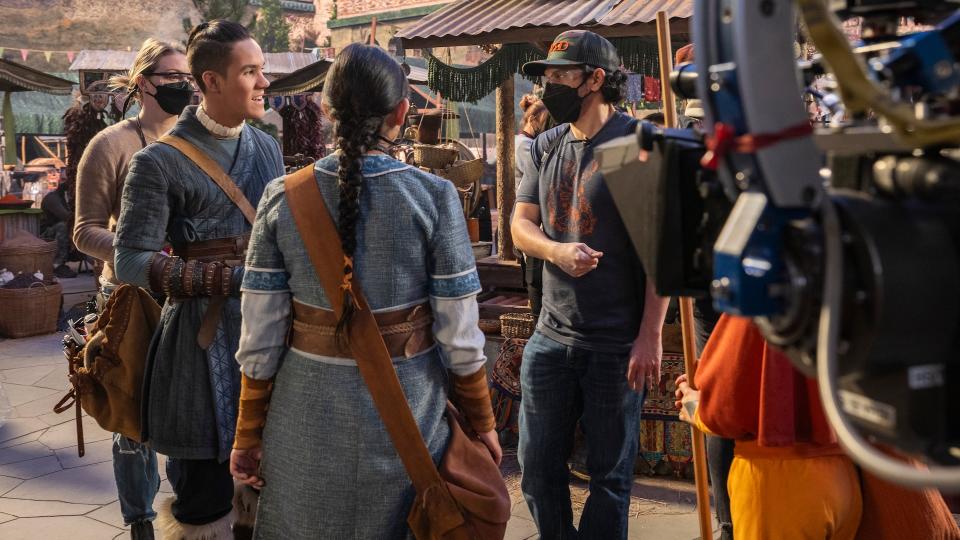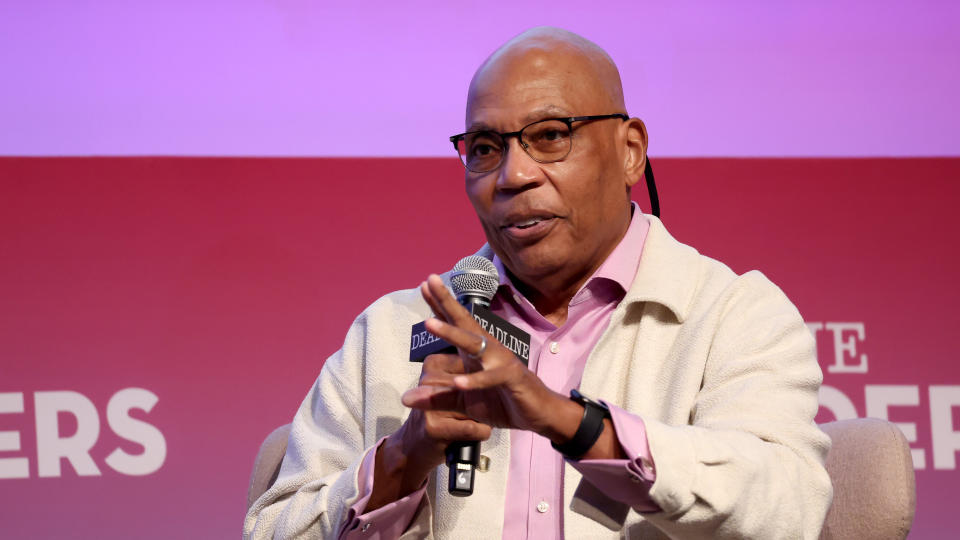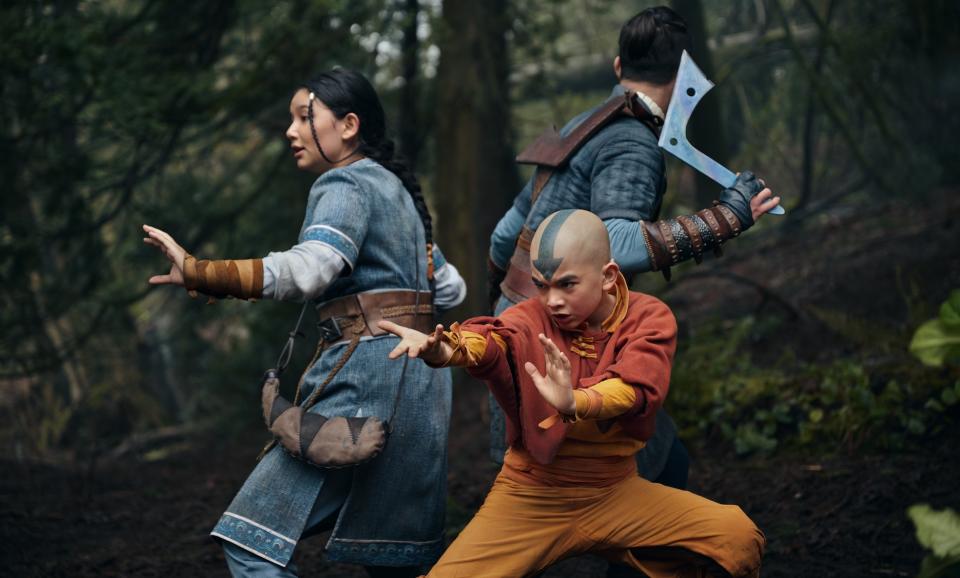Netflix’s Diversity Program Turned This Director Into a Top Showrunner in Just 4 Years

Jabbar Raisani had hit a wall. He had done second unit directing on “Game of Thrones,” he was a seasoned visual effects artist and two-time Emmy winner for “Thrones,” and he even directed his first indie feature. But he couldn’t get that next job and make the jump to what he really wanted to be: an episodic TV director.
“I was really looking for any avenues that I could to help to expand my network and to increase my opportunities and chances of actually booking an episode,” Raisani told IndieWire. “I was getting lots of meetings, but not a lot of opportunities.”
More from IndieWire
So as a South Asian filmmaker from San Antonio, Raisani turned to some of the many diversity incubator programs set up across Hollywood to set himself apart from the many white dude directors flooding the space. He had participated with programs led by NBC, Sony, what was then Viacom, and the Directors Guild of America. But he “still was running into the same barrier.”
“I had a really good reel, I had a lot of heavy visual effects experience, but I didn’t have an episode under my belt,” he said. “If you can’t check that box as you’re going down the list of things you’ve done, it makes your opportunities of getting a full episode of directing much, much more difficult.”
It wasn’t until he signed up for Netflix’s inaugural Series Director Development Program that something changed. He got his first directing gig on “Lost in Space,” and he did VFX work on the latest season of “Stranger Things.” Now just four years removed from being selected in that program’s first cohort, he’s not just a working director but was last month named the co-showrunner on one of Netflix’s flagship new series, “The Last Airbender.”

There’s no shortage of DEI initiatives around town, the ones studios love to brag about in flashy press releases to show they’re making a difference in the industry, even if the numbers still say otherwise. But Raisani’s journey is a rare success story, and he has reached a higher level in the industry in a shorter time than even some of the other directors in his same cohort.
“He always looked at ways to bring out the best from the other people he was working with,” said former DGA president Paris Barclay, who was Raisani’s instructor for the Netflix diversity program. “You saw he was open, and one of the things we really tried to teach in the Netflix class is directing isn’t just about calling the shots and having a megaphone and being the director. It’s about engaging other creative people to help you tell the story. He was a master of that already in a very calm, very unassuming way. You just want to work with him.”
But even if Raisani had all the attributes, he had heard from a top producer why he still wasn’t reaching that next level.
“She said, look, here’s the way this goes: You have a great meeting with me and I love you in the room and I believe in you,” Raisani explained. “But if I send your resume up to the person that’s up above me, and they see you’ve never directed an episode of television, you will be taken out of consideration. What you’re running into is you’re getting to here and having a great meeting. But up there, it’s just about checking a box.”
Raisani left that meeting knowing he had to change — and it wasn’t the only meeting he took like it. He realized his path wouldn’t be a straight line, and he had to remain flexible. He knew being in the Netflix program alone wouldn’t get him a job, but the real value of the program was it got him to a point where he couldn’t be ignored any longer.
“It started taking the the reasons to say no away,” Raisani said. “It’s less about getting a yes and it’s more about taking away people’s opportunity to say no. And once you can get enough of the no’s out of the way, then you end up with a yes. But that meeting where you hit a home run, everybody loves you, and you come away with an episode, I never had that experience.”

Raisani’s other incubator experiences were valuable in their own way, but the Netflix program hit different. Barclay assigned exercises that went beyond providing a forum for a few guest speakers. Raisani said he had to write “extensive shot breakdowns,” taking an existing script Barclay had already shot and lay out an entire plan for how he would shoot it. Raisani said it amounted to doing a full day of prep on top of having a full time job. The other incubators didn’t come close to Barclay’s 10-week crash course in terms of homework.
Barclay also used the other students in the cohort as sounding boards for the students, asking them to critique each others’ work. And he lectured about things not generally taught in film school such as the hierarchy of TV directing or even the spiritual side of the craft. Barclay also brought in speakers like Ava DuVernay, Charlie Hunnam, and Barry Jenkins to talk about their craft, and in Hunnam’s case, the nuances of working with actors for young directors who had never really done it before.
Raisani isn’t the only one from his graduating class to find some success in Hollywood, some not even at Netflix. Juanesta “Winnie” Holmes has directed episodes of “Family Reunion” and “The Upshaws,” and Gonzalo Amat has directed “Fire Country,” “Chicago Med,” and Law & Order: Organized Crime” for network TV. Barclay says it’s in Netflix’s interest to develop people who can move between different genres and styles, even if they wind up directing elsewhere.
But Raisani is something of a unicorn. His brother, Rashad Raisani, is an EP on “9-1-1: Lone Star,” and on “The Last Airbender” he’s part of a fully AAPI directing team. Barclay early on in the program told Netflix Raisani was “one of the ones I would hire,” touting his accessible leadership style and ability to express ideas you want to embrace.
“I can’t exactly bottle that skill, but if I could, I would make a lot of money,” Barclay said of Raisani.

Raisani and Barclay both believe however that if he’s not going to be a one-off anomaly of the DEI push, studios need to do more with their programs. Raisani’s idea is to guarantee an episode of television within two years of completing an incubator and let them check that box, something Barclay says other programs are slowly adopting. If the studio isn’t 100 percent confident in that person to let them film an episode of TV, they shouldn’t be in the program to begin with.
“You’re going to see people that make that transition versus people that end up stuck in this void of, ‘I’ve done a lot of programs but I never got an opportunity to direct an episode,'” Raisani said. “I certainly got got stuck in that void.”
“It needs to go beyond that,” Barclay added, saying it can’t just be something a studio is obligated to do. “I think it needs to also accept people that you’re willing to stand behind and have a commitment for. If that show gets canceled, you still have the commitment and Netflix will keep looking out for you and keep finding opportunities for you.”
Best of IndieWire
The Best LGBTQ Movies and TV Shows Streaming on Netflix Right Now
Guillermo del Toro's Favorite Movies: 54 Films the Director Wants You to See
Nicolas Winding Refn's Favorite Films: 37 Movies the Director Wants You to See
Sign up for Indiewire's Newsletter. For the latest news, follow us on Facebook, Twitter, and Instagram.

 Yahoo News
Yahoo News 
